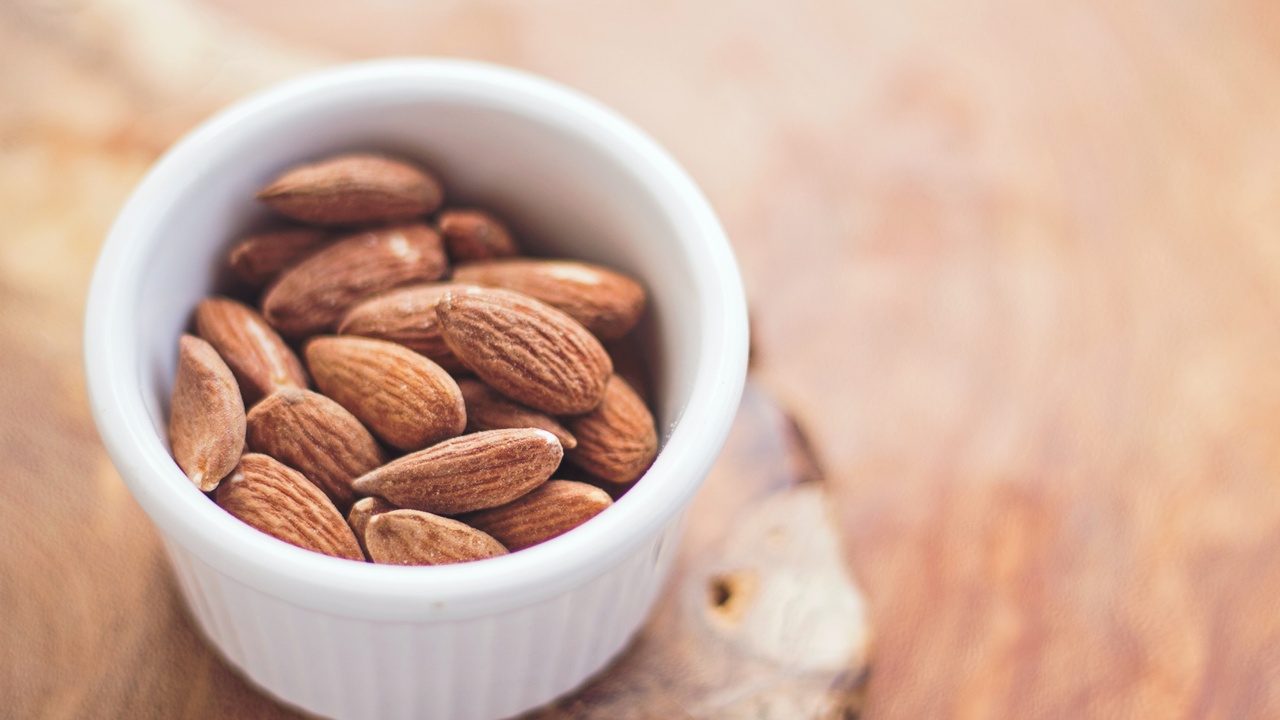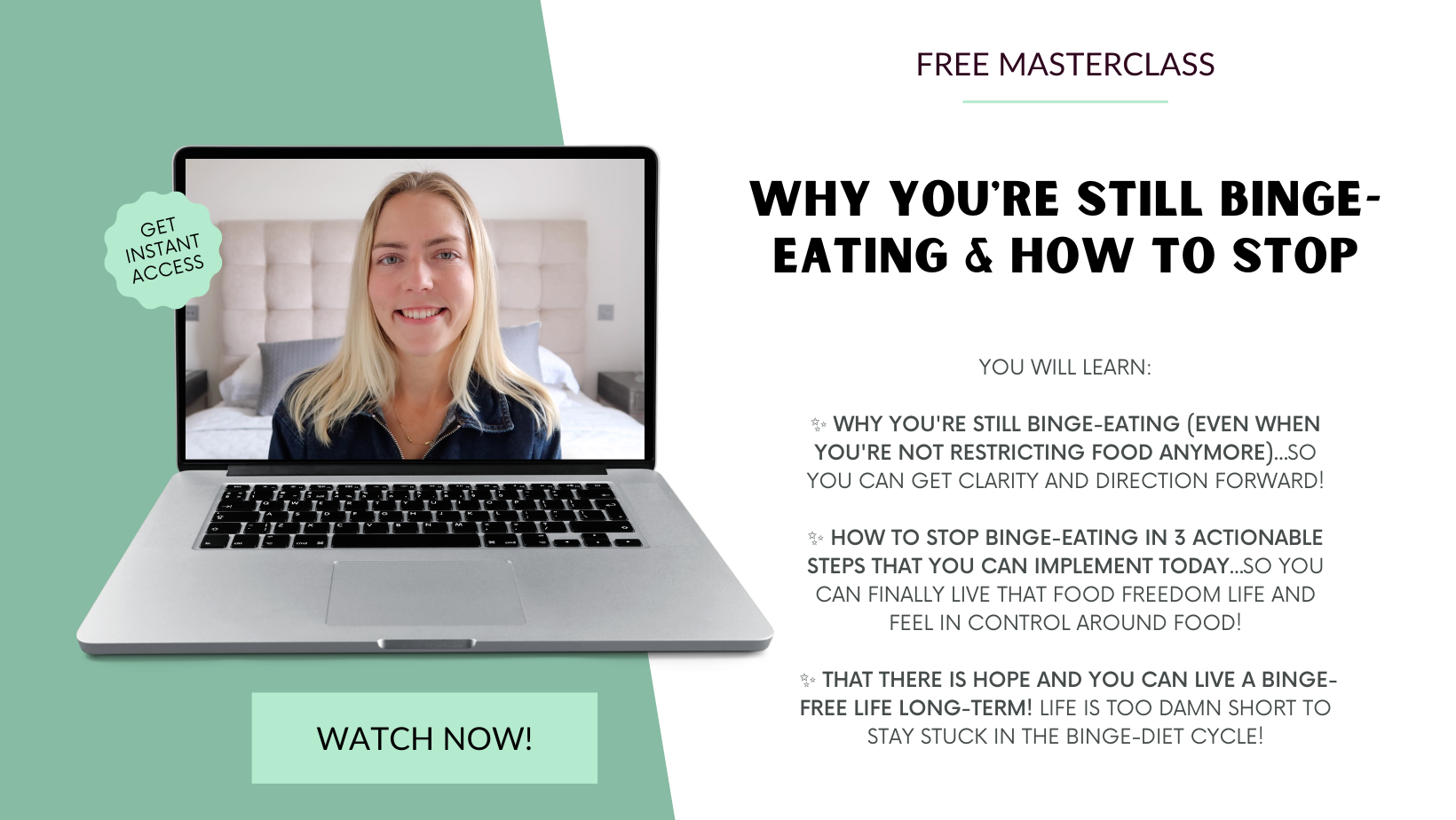Should I Stop Calorie Counting? Is It Bad To Calorie Count?
Dec 10, 2022
Do you think it’s bad that I get a lot of peace of mind from calorie counting? Is it something I should try to stop doing?
This is a question I get often from 1:1 clients and students of the 30 Day Reboot.
If you find something so calming and helpful - yet non-diet and intuitive eating movements remind you of how bad it is – what should you do?
In this article, we’ll dive into why you calorie count, how to decide whether or not to stop counting, and if so, how to stop.
WHAT IS CALORIE COUNTING?
Calorie counting is the act of measuring and tracking the number of calories that you are consuming and expending (i.e. counting how many calories are in the food that you eat, and how many calories you use in exercise). Calorie counting often involves inputting your counts into apps like MyFitnessPal or your Notes app.
It may sound pretty harmless when put like this - and to some, it may be especially in the short term. But let’s list out the pros and cons of calorie counting.
BENEFITS OF CALORIE COUNTING
- Weight loss results: Self-monitoring has been linked to greater fat loss results in studies. In an evaluation of self-monitoring of an 18-week standard behavioural weight loss program, individuals who consistently kept food records had a mean loss of approximately 15 kg, while those who did not self-monitor gained an average of about 4 kg.
- Clarity: Humans are notoriously bad at guessing the number of calories in food - research shows that we often underestimate our food intake by up to 30-50%!!
- Weight Gain: Calorie counting can help you get weight change results - that includes weight gain too. Sometimes those who need to gain weight find it helpful to track calories to ensure they are eating enough food.
- Educational: Some may view calorie counting like using training wheels on a bike - it can be helpful in the short-term to help you get a rough idea of the number of calories in different foods (for weight change results). Then once you get the idea, the wheels can come off.
An example of when knowing the number of calories in foods/amount used in exercise can be helpful: You might be eating a veggie-heavy lunch that feels like it’s a lot of food because veggies are low-calorie-density foods in general, but confused as to why you’re feeling hungry a few hours later. It’s helpful to be aware of calories in this example.
PROBLEMS WITH CALORIE COUNTING
- Time-consuming: It takes time to guess or research, and input your calorie counts all the time.
- Annoying: It can be stressful to be thinking about calories constantly. E.g. when you’d rather be just enjoying a dinner cooked by friends, you might still be trying to take mental note of what ingredients were in the dish so you can track them later.
- This leads to further food issues: You may find yourself starting to create a calorie debt meaning perhaps one day you overate by 1,000 calories - and then you distribute those 1,000 calories out over the following days to try to undo the damage.
- Doesn’t acknowledge that each day is different: oftentimes, calorie counters will assign themselves a daily calorie limit - instead of acknowledging that your body has different needs each day or throughout the month. For example, during a woman’s luteal phase - her body requires 200 calories extra daily.
- Calorie counters can get too bogged down on daily successes or failures based on whether they stay within their calorie limit. But really, if weight loss is your goal - it’s better to look at the bigger picture - at weekly or monthly trends.
- Can contribute to disordered eating: Preliminary evidence suggests associations between calorie and macro tracking apps and three types of disordered eating (binge eating, cognitive dietary restraint - where you’re constantly feeling like you’re making an effort to limit what you eat, and moralising food)
- Forget how to intuitively eat: Calorie counting in the long term can cause you to ‘forget’ how to eat intuitively. I see often where calorie counters lose self-trust. They don’t have the confidence to make food decisions without calorie counting and tracking.
"WHY DO I LIKE CALORIE COUNTING?"
From that list above, when done in the long term, it’s clear that calorie counting isn’t too ideal. Yes, for some in the short-term it can be a handy tool to achieve weight loss or gain, however, in the long term, most people find it difficult to do while maintaining a healthy and relaxed food relationship.
So why do you gain so much peace from calorie counting?
It’s very likely that calorie counting offers you a sense of control over food and your weight. “If I just stick to these numbers, everything will work out”
You might even find it easier to eat ‘bad’ foods or go to restaurants because you can always track the calories and still know how much more you can eat in the day. Whereas, without tracking, you may fear overeating and ruining weight loss results.
Ultimately that sense of control offers you feelings of safety. And without calorie counting, it feels chaotic and out of control. You may feel like you’ve forgotten how to…just eat. It may feel baffling for you that other people just eat freestyle without much thought and don’t gain weight.
So that begs the question…
SHOULD I STOP CALORIE COUNTING?
Here’s a question for you:
When you close your eyes and imagine your dream life - that best version of you, the embodied authentic self - the one without pain, shame or programming from society, peers, media, family etc…
How do THEY eat?
How does that person navigate food and body?
Are they hunched over their phone after every meal noting down exactly how many calories were consumed? Measuring and weighing food to get the predictions accurate? Are they focused on how many calories were burned during exercise?
Maybe that best version of you does want to gently lose fat in a sustainable way - which is totally fine - and maybe they do use calorie counting as a guide during that temporary process. But once they’ve lost weight, how do they eat? Maybe they lose weight in a more intuitive way (taught in SFL).
There is your answer to ‘should I stop counting calorie?’
At the end of the day, food and body freedom is about freedom. You get to eat and move however you want! You get to use whatever tools you want.
The key is what works for you. Maybe calorie counting is helpful for you temporarily - maybe not at all. It’s about discovering what makes you feel most at peace and confident in yourself.
Some final thoughts to ponder when deciding if calorie counting is right for you:
Remember: A tool is only as good as the job it does. So, if:
- calorie counting genuinely works for you;
- you truly enjoy it;
- you find it empowering and interesting; and
- you’re achieving your goals with it easily…
…then, go ahead, keep doing it!
If, however:
- Tracking calories makes you feel confused, anxious, distressed, or any other negative emotion;
- you find it time-consuming and energy-draining;
- you’re putting too much attention towards it, creating an imbalanced life;
- you’re spending more time on it than actually doing the things that help you reach your goal…
…then it’s probably not for you.
HOW DO I STOP CALORIE COUNTING?
If you’ve decided that tracking your calories is not for you and you want to release this habit, then I highly recommend reading this article 7 Ways To Stop Calorie Counting or even better - check out the 30 Day Reboot, my online course designed to help you feel totally free with food and your body (while still caring about your health).
Some quick pointers though on stopping calorie counting:
- Remember that this is likely an ingrained habit at this point - so know that it will take some time to totally release. That’s ok!
- Remember what calorie counting ‘solves’ for you right now - is it that sense of peace and control around food and weight? If you’re taking away this safety blanket, remember to find ways to provide yourself that safety in more helpful ways. That might be a case of proving to yourself with every meal that you don’t track, that actually you’re completely safe! Nothing bad happens!
- When you pair intuitive eating techniques like mindful eating, alleviating emotional eating, gentle nutrition etc - it makes it ‘safer’ to lift calorie counting because that ‘bad’ thing that you fear happening (probably weight gain), it much less likely to happen.
For more help with food freedom and stopping calorie counting - I highly recommend the 30 Day Reboot. I’ll guide you over 30 days to that life that your dream of where your best self isn’t tracking calories and is eating without stress and guilt.
With Love,
Brid
Start your food and body healing journey with the FREE masterclass
"Why You're Still Binge-Eating & How To Stop"


